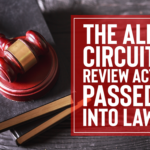In most False Claims Act (FCA) cases, the decision by the federal government not to intervene in the manner generally means the plaintiffs will face a steep, uphill battle, but a recent case brought by a nurse in Tampa shows that whistleblowers can nevertheless reap huge rewards for persisting in their fights. Angela Ruckh, a nurse who worked part-time at a nursing home facility in Florida, had noticed that her new employer was training its employees to submit inflated claims for Medicare and Medicaid reimbursement to the government, and brought the FCA claim against the conglomerate of health care facilities that ran the facility. Ruckh now stands to take home a significant chunk of the $115 million awarded by the jury.
Ruckh Notices Improper Practices on the Job
Ruckh, who was worked her entire career as a registered nurse in various facilities, took a short-term job with LaVie Rehab in 2011 to help train employees at the facility on filling out the forms that would be submitted to the government to obtain reimbursement for care covered by Medicare or Medicaid. According to Corporate Crime Reporter, Ruckh was shocked to find that the company was engaging in a variety of fraudulent activities against the government to increase their profits, from submitting inflated claims for services not provided to patients to providing services to patients that were not necessary or useful.
After seeing these practices, Ruckh went online to research what could be done to address such fraudulent practices and found an attorney who focused on bringing whistleblower claims against private parties engaged in fraud against the government, and that attorney assisted her throughout the process of winning the $115 million judgment. In general, persons who successfully bring FCA claims are personally entitled to between 15% and 25% of the money recovered, meaning Ruckh may stand to walk away with between $17 million and $29 million for her efforts in bringing the case.
Winning Without Government Intervention
In a typical FCA claim, the federal government will review the merits of the claim and will join in the case if it determines there is a high likelihood of success. In Ruckh’s case, the government actually declined to join her in litigating her FCA claims, but did file documents supporting some of her legal arguments, specifically the argument that she could extrapolate the cumulative fraud perpetrated by the defendants based on the evidence of fraud she was able to document. Ruckh worked with a statistician to examine the records of “upcoding” (charging the government for services over and above what was actually provided) and extrapolate the full number of such upcoded claims fraudulently submitted to the government.
Although having the Department of Justice intervene in an FCA claim is a goal that every plaintiff bringing an FCA claim wants to achieve, Ruckh’s example shows that it is not absolutely necessary in order to achieve success.
What to Do if You See Upcoding and/or Fraudulent Medicare/Medicaid Claims
If you see a company engaged in Medicare or Medicaid fraud through the submission of upcoded claims or claims for services not provided, you can take action to fight this fraud and obtain a significant monetary reward for your efforts in the process. The first step is to contact an experienced whistleblower attorney who can guide you through the process of bringing and winning your FCA claim.
At Kreindler & Associates, our experienced healthcare fraud attorneys will work with you every step of the way to determine your appropriate course of action, protect you from retaliation, and collect your much-deserved reward. If you suspect that someone is committing Medicare fraud through upcoding, unbundling, or some other illegal activity, contact us today for an evaluation of your allegations.




